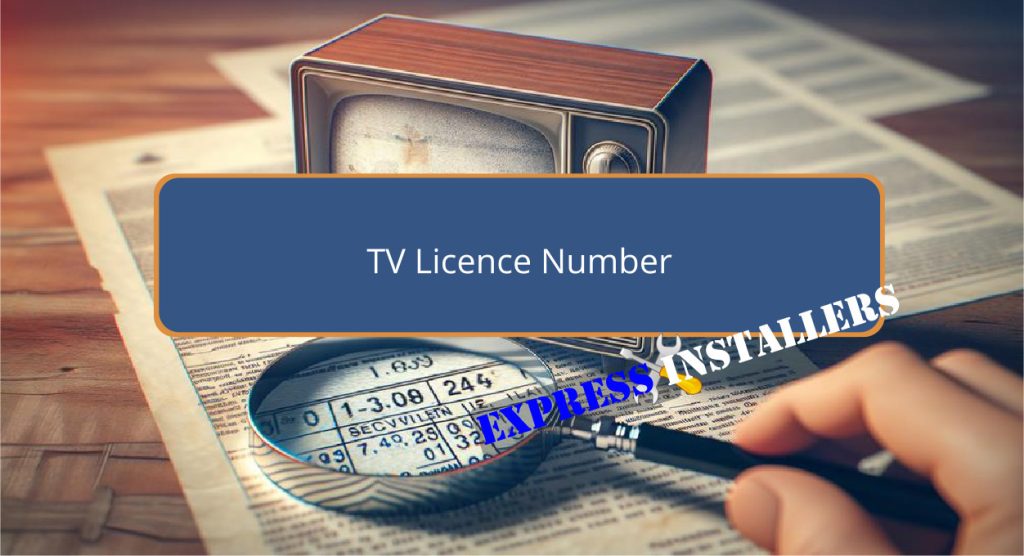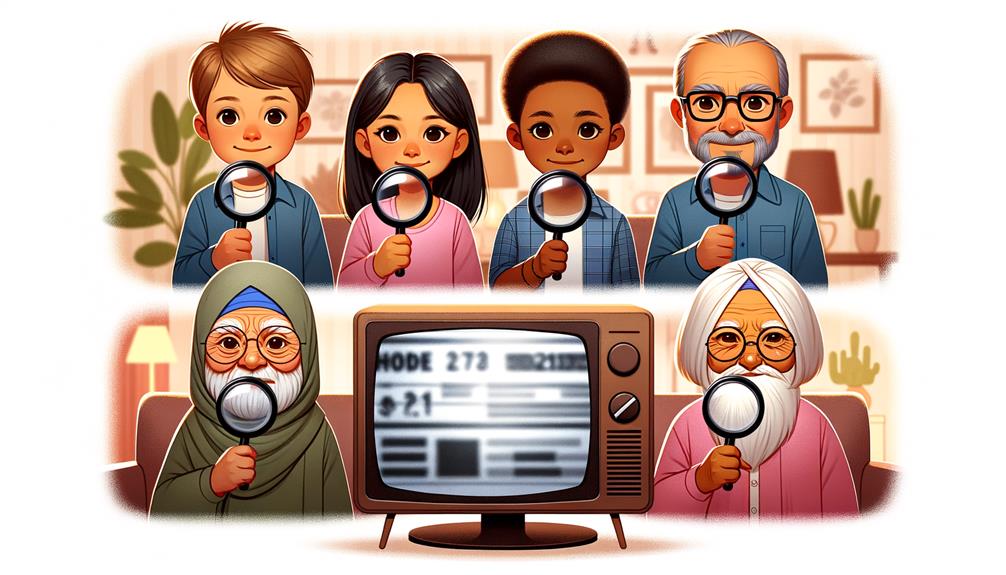
A TV licence number is a unique identifier assigned to television users to ensure compliance with broadcasting regulations.
Each number is formatted with specific digits and region-specific prefixes, aiding in the verification and authorised use of television services.
This number plays a vital role in maintaining the integrity of funding for public broadcasting, by identifying unlicensed viewers and enforcing legal actions if necessary.
Understanding and adhering to these regulations helps support quality public broadcasting, enhances cultural impacts, and guarantees the provision of educational content.
Gaining a deeper understanding of its importance may further reveal the extensive impact of compliance on media consumption.
Quick Summary
- A TV Licence number is a unique identifier required for legal television usage.
- It ensures compliance with broadcasting regulations and supports public broadcasting funding.
- The number format includes digits and region-specific prefixes to verify validity.
- Authorised verification methods are used to check the authenticity of a TV Licence number.
- TV Licence numbers are critical for maintaining the integrity of broadcasting services and funding.
Understanding TV License Numbers

A TV Licence number is a unique identifier assigned to each registered television user, guaranteeing compliance with broadcasting regulations and funding public television services.
The number format typically includes a series of digits that may be prefixed by letters indicating specific regions or user types.
This format is essential in maintaining an organised and efficient system to manage the vast database of users.
Verification methods are rigorously implemented to make sure that each number is valid and corresponds to an authorised user.
These methods include cross-referencing user information with national databases and, in some cases, physical verification checks.
This meticulous approach not only prevents fraud but also supports the integrity of the broadcasting service’s funding model, which is crucial in sustaining quality public broadcasting.
Importance of a TV License
Maintaining a TV Licence is crucial for guaranteeing the continuous support and development of public broadcasting services.
The fees collected are pivotal in financing programming that reflects a nation’s identity and values, promoting a diverse cultural impact.
However, ensuring everyone complies presents significant enforcement challenges. Non-compliance can undermine the quality and sustainability of public broadcasting.
| Aspect | Importance | Challenges |
|---|---|---|
| Funding | Supports public broadcasting | Non-payment issues |
| Cultural Impact | Enhances national identity | Diverse audience needs |
| Legal Enforcement | Ensures compliance | Evasion and fraud |
| Educational Content | Informative programming | Balancing commercial interests |
| Community Outreach | Local content support | Funding allocation |
This structure supports the critical role of TV licenses in maintaining a robust broadcasting service that benefits all citizens.
Legal Requirements for TV Licensing

Understanding the legal requirements for TV licensing is key to guaranteeing that viewers comply with national broadcasting regulations.
It’s essential to investigate whether one is eligible for license exemptions, which often apply to specific demographics such as older people or those with disabilities.
Additionally, grasping the circumstances under which license modifications can be made is vital. This includes changes in the viewer’s address or alterations in the type of broadcasting services received.
Such legal stipulations are designed not only to uphold the law but also to protect the rights of consumers and ensure fair access to broadcasting.
Advocating for awareness and adherence to these regulations is fundamental in maintaining the integrity of broadcasting services and ensuring that all viewers are equally informed and compliant.
How to Obtain a TV License
To obtain a TV license, individuals must first apply through the official broadcasting authority’s website or local office.
The application process involves submitting personal details and confirming eligibility to ensure compliance with legal requirements.
It is vital for applicants to understand the nuances of the application process, which may vary depending on the region.
Additionally, potential license holders should be aware of the license duration, which typically spans one year but can vary.
Being informed about the length of validity is critical as it affects the renewal process and compliance with broadcasting regulations.
Advocating for clarity and transparency in this process, it is important that all applicants review the terms and conditions thoroughly to avoid any legal complications.
Navigating TV License Registration

Getting through the registration process for a TV license requires careful attention to detail and adherence to specific procedural steps.
To guarantee a smooth registration, it’s essential to utilise online registration tips effectively.
Begin by gathering all necessary personal information and payment details to prevent any interruptions during the process.
Navigate to the official licensing website, and look for the registration section. Follow the instructions meticulously, inputting data accurately to avoid errors that could delay your application.
Regarding registration confirmation methods, always make sure that upon completing your registration, you receive a confirmation email or message.
This serves as proof of transaction and is critical for future reference or any required follow-up with the licensing authority.
Common Issues With TV Licenses
Several common issues frequently arise when dealing with TV licenses, ranging from delays in processing to difficulties in license renewal.
Troubleshooting errors and understanding license exemptions are pivotal for ensuring viewers comply without undue hardship.
| Issue | Impact |
|---|---|
| Delay in Processing | Leads to potential penalties and service interruptions for users. |
| Troubleshooting Errors | Frustrates consumers, often due to unclear guidance or system faults. |
| License Exemptions | Lack of awareness can result in unnecessary payments or legal issues for those eligible for exemptions. |
To effectively address these concerns, it’s essential to advocate for clearer information dissemination and a more streamlined application process.
This approach not only aids in compliance but also supports fair practices in licensing administration.
Renewing Your TV License

Understanding how to renew your TV license efficiently can mitigate many of the common issues previously outlined, such as delays and troubleshooting errors.
Investigating the renewal process reveals that leveraging online renewal options greatly streamlines these procedures.
This method not only enhances user convenience but also reduces the administrative backlog.
When renewing online, users can choose from various payment methods, including direct debit, credit card, or even PayPal.
Such flexibility accommodates diverse financial preferences and capabilities, ensuring that all demographics can manage their renewals adeptly.
It is important for license holders to be aware of these options and to utilise them to avoid service interruptions and potential penalties.
Advocating for these accessible and user-friendly approaches will foster compliance and satisfaction.
Costs Associated With TV Licensing
The financial obligations of maintaining a TV license encompass both the initial acquisition cost and periodic renewal fees.
As viewers, it’s important to understand not only the expenditure but also the available payment methods and exemption criteria which can greatly impact the overall financial situation.
- Initial License Fee: The upfront cost required to legally enable television reception.
- Annual Renewal: A recurring fee to continue the service, with potential for price adjustments.
- Payment Methods: Options such as monthly installments, direct debit, or lump sum payments.
- Exemption Criteria: Qualifications that might allow individuals to reduce or waive fees, such as age or disability.
An informed approach ensures compliance while potentially reducing expenses through understanding and utilising available exemptions and payment options.
Consequences of Non-Compliance

Failing to comply with TV licensing requirements can lead to significant legal and financial repercussions.
Enforcement strategies employed by authorities are rigorous and multi-faceted, focusing on both deterring violations and ensuring penalties are applied to offenders.
Compliance monitoring systems are sophisticated, utilising data analytics and cross-referencing techniques to identify unlicensed viewers.
Individuals caught without a valid TV license may face hefty fines, and in severe cases, legal prosecution. These measures underscore the seriousness with which TV licensing laws are regarded.
The goal is not only to penalise but also to educate the public about the importance of adhering to licensing laws, ensuring broadcasters receive the necessary funding to continue delivering quality content.
Managing TV License Records
Effective management of TV license records is crucial to guarantee compliance and facilitate accurate enforcement actions.
Central to this are the advancements in digital storage options and practical record-keeping tips, which together enhance the integrity and accessibility of records.
An investigative look into the methods reveals the following critical practices:
- Implement Digital Archives: Utilise robust digital storage solutions to secure data and ensure easy retrieval.
- Regular Updates: Maintain records regularly to reflect any changes promptly and accurately.
- Access Controls: Set stringent access controls to prevent unauthorised data breaches.
- Audit Trails: Incorporate detailed audit trails to track access and changes, aiding in transparency and accountability.
Adopting these practices can greatly optimise the management of TV license records, promoting legal adherence and operational efficiency.
Frequently Asked Questions
Can I Transfer My TV License to a New Address?
Regarding relocating your licensed service, the address update process typically involves notifying the issuing authority. Potential license transfer fees should be verified to guarantee compliance and uninterrupted service at your new residence.
Does a TV License Cover Streaming Services?
A TV license typically does not automatically cover streaming on online platforms. Service eligibility for streaming services is generally governed by separate subscriptions or user agreements with the specific platform providers.
Are There Discounts for Students on TV Licenses?
Students may be eligible for discounts on TV licenses, particularly if they live in shared accommodations or only need coverage during semester breaks, providing cost-effective solutions for their television viewing needs.
How Can I Cancel My TV License?
To cancel your TV license, initiate the cancellation process by contacting the issuing authority directly. Verify your refund eligibility, as you may receive a partial refund depending on the remaining period of validity.
What Proof Is Needed for a TV License Exemption?
To qualify for a TV license exemption, one must provide exemption documentation substantiating valid reasons, such as age, disability, or other qualifying criteria, as determined by the relevant licensing authority or regulations.
Conclusion
To sum up, understanding and adhering to TV license regulations is imperative for legal compliance and ensuring the continued support of public broadcasting services.
Failure to comply can lead to significant legal and financial consequences.
Therefore, individuals must be diligent in obtaining, renewing, and managing TV licenses.
This involves being aware of the associated costs and legal mandates, which ultimately support the integrity and functioning of the broadcasting sector.
.Awareness and compliance foster a responsible viewing culture.
